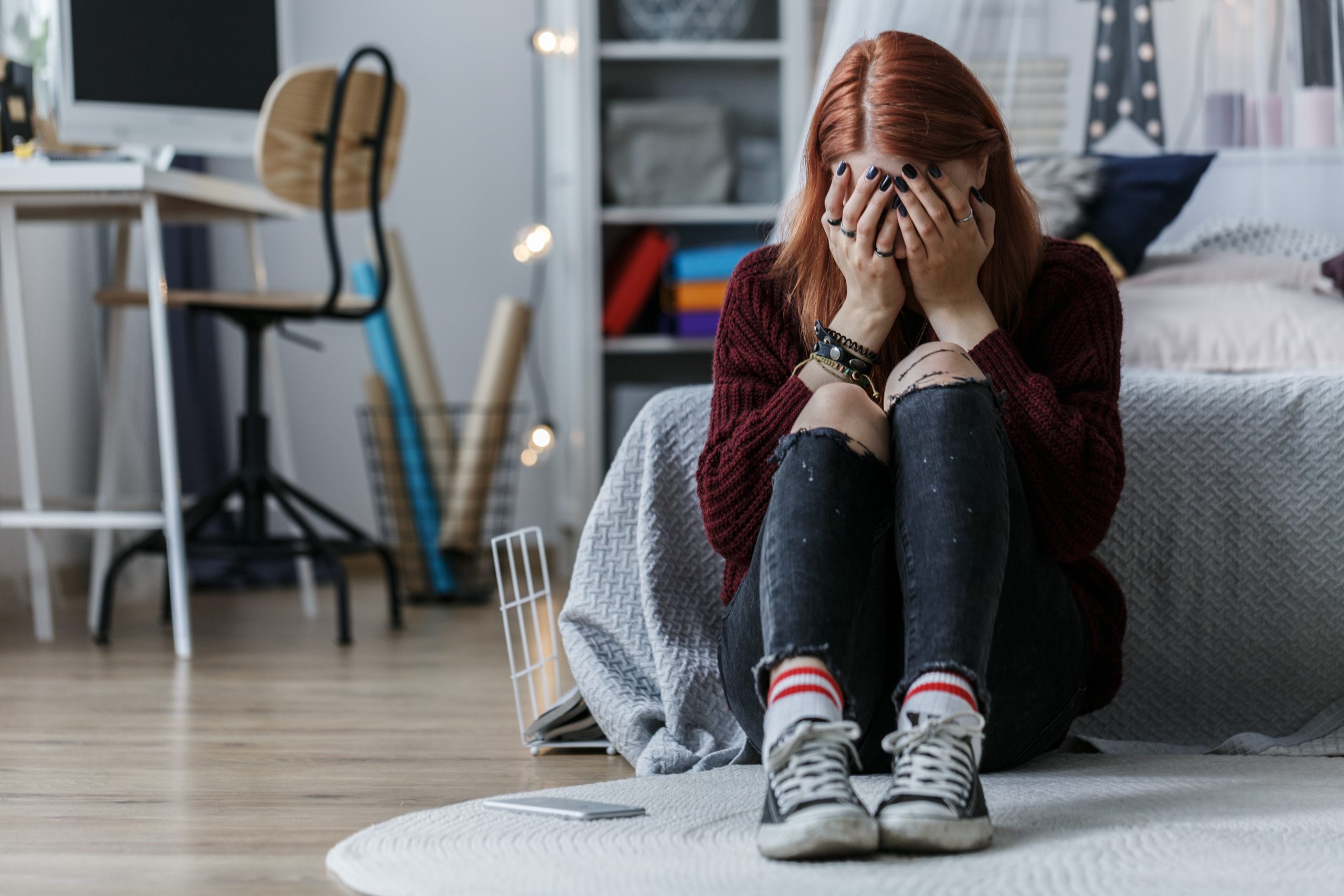Anxiety is a natural human emotion that everyone can experience from time to time. It’s that nervous feeling you get before a big test, a presentation or when something important is happening in your life. For many people, these anxious feelings come and go. But when anxiety becomes overwhelming or is happening too often, it can start to affect your life. This is when anxiety may turn into something more serious, like an anxiety disorder.
Anxiety is very common among teens, and you’re definitely not alone if you’ve been struggling with feeling anxious. In fact, nearly 1 in 3 adolescents between the ages of 13 and 18 experience an anxiety disorder at some point, according to Cleveland Clinic. There are different types of anxiety disorders that teens may face, including:
- generalized anxiety disorder
- social anxiety disorder
- panic disorder
- post-traumatic stress disorder
- specific phobia
- obsessive-compulsive disorder
- separation anxiety
You may be wondering if anxiety can make you physically sick, like feeling nauseous. The short answer is yes. Anxiety can definitely make you feel nauseous. But to understand why this happens, let’s first take a closer look at the symptoms of anxiety and how they can affect your body.
Symptoms of anxiety and how they can affect your body
Anxiety doesn’t just affect your mind. It can also have a big impact on your body. When you feel anxious, your brain is sending signals to your body that something is wrong. When these signals are received, your body reacts as if you’re in danger, even if you’re not. This is your body’s “fight-or-flight” response. This response is something our bodies do to help protect us. Your heart starts racing, your breathing becomes faster, and your muscles tense up to prepare you to either fight or run away from danger.
For teens experiencing anxiety, symptoms can vary from person to person, but symptoms can include:
- racing heart
- breathing rapidly
- sweating
- shaking or trembling
- feeling tense
- feeling dizzy
- experiencing nausea or stomach pain
- developing headaches
- sleeping troubles
Why does anxiety cause nausea?
When you feel anxious, your brain releases stress hormones like adrenaline and cortisol. These hormones are designed to help you respond to danger. However, when there is no real danger, they can cause unpleasant side effects, like nausea. Anxiety can affect your digestive system because your brain and gut are closely connected. This connection is often called the “gut-brain connection.”
Anxiety can also cause you to hyperventilate, or breathe too quickly, which can change the balance of gases in your blood and make you feel lightheaded and sick to your stomach.
For many teens, anxiety-related nausea can be confusing and frustrating, but it’s important that you remember it’s a treatable condition. There are also things you can do to help reduce both the emotional and physical symptoms, inducing nausea.
How can you stop anxiety?
If anxiety is making you feel nauseous or causing you to experience other uncomfortable symptoms, there are ways you can manage it. Here are some strategies you can use to help you feel more in control of your anxiety:
- Practice deep breathing — One way you can help calm your anxiety is through deep breathing exercises. When you breathe deeply, it sends signals to your brain that it’s OK to relax. Relaxing can help lower your heart rate and calm your fight-or-flight response. Try inhaling deeply through your nose for a few moments, holding your breath for a few moments and then exhaling slowly through your mouth. Repeat this cycle a few times until you start to feel calmer.
- Use grounding techniques — Grounding exercises can help you bring your focus back to the present moment when your anxiety tries to take over. One technique is the 5-4-3-2-1 method. To use this method, look around and name:
- five things you can see
- four things you can touch
- three things you can hear
- two things you can smell
- one thing you can taste
- Try progressive muscle relaxation — Progressive muscle relaxation involves tensing and then relaxing different muscle groups in your body. You’ll start with your toes and work your way up to your head. This can help release the physical tension you’re experiencing and help you feel more relaxed.
- Get regular exercise — Physical activity can be a great way to help reduce your anxiety. Exercise burns off excess adrenaline and increases the production of endorphins, which are your body’s natural mood boosters. Even a quick walk, stretching or light exercises can make a big difference in your mood.
- Talk to someone you trust — Whether it’s a parent, friend, teacher, counselor or therapist, talking about your anxiety can help lighten your emotional load. Sometimes just having someone listen can make you feel less alone and better understood.
- Seek professional help — If anxiety is affecting your daily life and causing physical symptoms like nausea, it’s a good idea to talk to a mental health professional, like a therapist or counselor. They can teach you healthy coping strategies and help you work through your anxiety in a way that’s tailored to help meet your needs.
Building a brighter future together at Embrace U
At Embrace U, we are dedicated to helping tackle the mental health crisis facing adolescents and teens in Middle Tennessee. We provide compassionate and comprehensive care designed specifically for teens like you. We understand that sometimes weekly sessions aren’t enough support, and that’s where we shine. Our intensive outpatient and partial hospitalization programs help you dive deeper into mental health challenges like anxiety. Our after-school sessions help ensure you get the support you need, fitting right into your schedule without messing up your day-to-day life. We believe that no teen should face their mental health struggles alone, and our mission is to provide the care and tools necessary to help you every step of the way on your journey toward healing.
Contact our team today for more information or to schedule an initial appointment.




